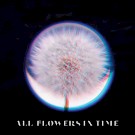 Malachi Graham’s debut EP, Selfish, features six Americana songs “inspired by family lore and complicated women"—"the compulsive wiretapper, the jealous lover, the censored femme fatale, and the title track’s confessional narcissist."
Malachi Graham’s debut EP, Selfish, features six Americana songs “inspired by family lore and complicated women"—"the compulsive wiretapper, the jealous lover, the censored femme fatale, and the title track’s confessional narcissist."
And it all kicks off with the sparsely strong “Pre-Code Blues”—“a song about uncensored women who don't accept punishment for their own desires and aren't afraid to ask for what they want,” Graham says. The opening song also includes a line “that sums up what I'm trying to do on this record”: “The complicated heroine's in short supply again.”
“I’m fascinated by antiheroes, characters that we find compelling not because they're likable but because they're enigmatic and don't follow any rules but their own—and I've always been a little mystified at how rarely literary and pop culture antiheroes are women,” Graham explains. “I think we need more representations of compelling, inscrutable women who don't care about being liked.”
 “The narrator of the title track, ‘Selfish,’ is a perfect example of that,” Graham continues. “I was trying to write from the perspective of someone who is grappling with her greatest flaw, torn between apologizing and acceptance, without actually offering to change.”
“The narrator of the title track, ‘Selfish,’ is a perfect example of that,” Graham continues. “I was trying to write from the perspective of someone who is grappling with her greatest flaw, torn between apologizing and acceptance, without actually offering to change.”
“A lot of my songs start with some little snippet I hear or historical moment I discover that makes me want to dive deeper,” Graham says. “I started working on the song ‘Wiretap’ when I heard that Guglielmo Marconi, one of the pioneers of radio telegraph, had a theory that all sound reverberates forever, so if we could build a strong enough radio, we could re-listen to every conversation in human history. Now that we all have recording devices on us almost all the time, it made me think that he's almost right—and it's a pretty dangerous possibility for human relationships.”
Developing the songs that appear on Selfish over the last five years, Graham found it “so rewarding to bring my stuff to a team of incredibly talented people who could help me breathe new life into them.” That team includes percussion by Dan Galucki (Wooden Indian Burial Ground), bass by William Joersz (Nick Jaina, Ezza Rose), and slide guitar by Courtney Von Drehle (3 Leg Torso).
“We recorded everything together to tape in single takes in two days at Mike Coykendall's house [Blue Room Studios], and one of my long-time favorite performers Dustin Hamman [of Run On Sentence] produced it with his seemingly effortless, bearded wisdom. It was messy and fun, and the songs feel more live and honest to me because of it.”



![Small Million, Dan Cable Presents, Mountain Air Studios [CLOSED]](/site/assets/files/47823/small-million-dan-cable.-picks.jpg)
